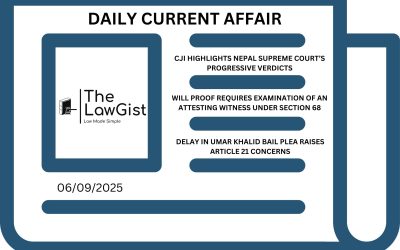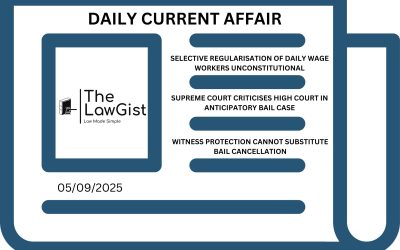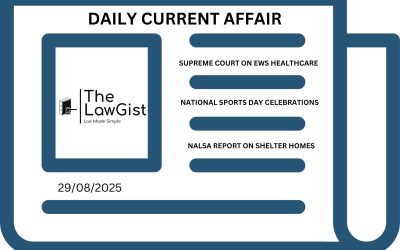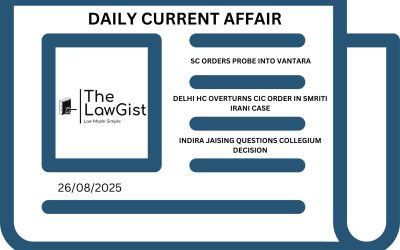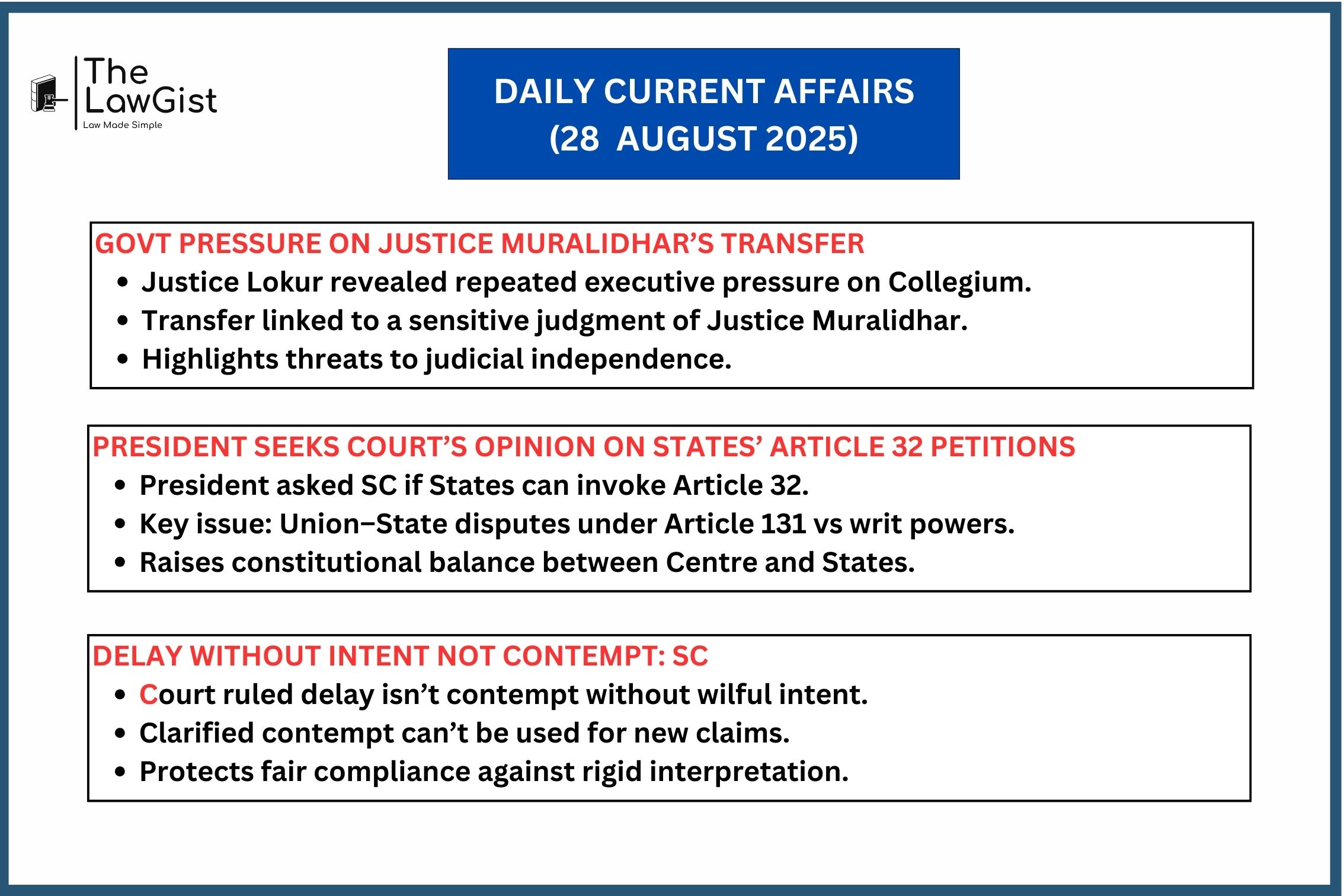
Key Supreme Court updates: Justice Muralidhar’s transfer controversy, Presidential query on States filing writs, and SC ruling on contempt and delays.
DAILY CURRENT AFFAIRS (28 AUGUST 2025)
GOVT PRESSURED COLLEGIUM TO TRANSFER JUSTICE MURALIDHAR, SAYS JUSTICE LOKUR
Overview: Transfer of Justice S. Muralidhar (as recalled by Justice Madan B. Lokur in his recently published book “[In]Complete Justice? Supreme Court at 75”)
Justice Madan B. Lokur has revealed that the Union Government persistently urged the Collegium to transfer Justice S. Muralidhar because of a ruling he delivered while at the Delhi High Court. The proposal was repeatedly resisted but finally succeeded after retirements within the Collegium, leading to Justice Muralidhar’s transfer in February 2020.
Legal Provision & Framework:
The legal provisions are mentioned below –
- Articles 124–147: Judicial independence and appointment process.
- Collegium System: Transfers require judicial primacy in decision-making.
- Basic Structure Doctrine: Independence of the judiciary insulated from executive interference.
- Judges Transfer Cases (1981, 1993, 1998): Established limits on executive power in judicial transfers.
Source: Supreme Court of India
PRESIDENT SEEKS COURT’S VIEW ON STATES FILING ARTICLE 32 PETITIONS
Overview: Presidential Reference – Maintainability of Writ Petitions by States
The Solicitor General informed the Supreme Court that the President has sought its opinion on whether States can directly approach the Court under Article 32 to challenge actions of the Union or Governor. The query questions whether such disputes fall exclusively under the Supreme Court’s original jurisdiction in Article 131.
Legal Provision
The legal provisions are mentioned below –
- Article 32: Fundamental right to move Supreme Court for enforcement of rights.
- Article 226: High Court’s writ jurisdiction.
- Article 131: Exclusive Supreme Court jurisdiction in Union–State disputes.
- Article 143: Presidential Reference mechanism for advisory opinion of the Supreme Court.
Source: Supreme Court of India
SUPREME COURT: DELAY WITHOUT INTENT IS NOT CONTEMPT
Oerview: A.K. Jayaprakash (Dead) through LRs vs. S.S. Mallikarjuna Rao & Another (2025)
The Supreme Court clarified that unintentional or administrative delays in complying with its orders do not amount to contempt, unless there is wilful disobedience. In this case, a bank’s post-merger administrative delay was excused. The Court also held that contempt cannot be used as a tool to raise fresh claims.
Legal Provision
The legal provisions are mentioned below –
- Contempt of Courts Act, 1971 – distinguishes civil and criminal contempt.
- Civil Contempt: Requires wilful disobedience of court orders.
- Jhareswar Prasad Paul v. Tarak Nath Ganguly (2002): Contempt not a forum for new relief.
- Article 129 & 215: Supreme Court and High Courts’ contempt powers.
Source: Supreme Court of India
Also Read: DAILY CURRENT AFFAIRS (26 AUGUST 2025)


